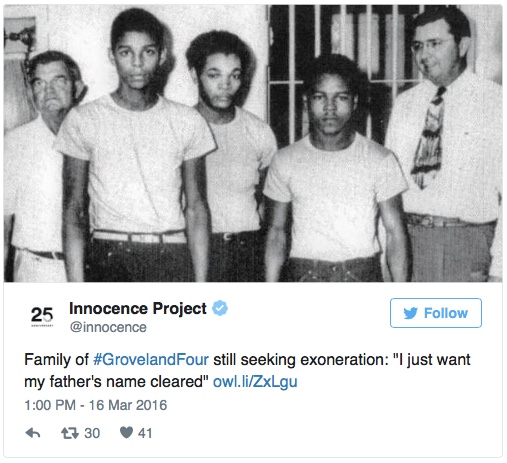‘We’re truly sorry’: Florida apologizes for racial injustice of 1949 ‘Groveland Four’ rape case
In the summer of 1949, a 17-year-old white girl named Norma Padgett accused four black men of kidnapping her from a dark road in central Florida and then, in the back seat of their car, taking turns raping her.
Neighbors quietly doubted the girl’s version of events, and others speculated that the elaborate, detailed account was merely a coverup for the bruises she’d collected from her husband’s suspected beatings.
But this was the era of Jim Crow, in the middle of Lake County, where the local economy was sustained by orange groves that white men relied on black men to nurture.
And there to ensure law and order was Willis V. McCall, a sheriff buoyed by his segregationist, union-busting, white supremacist reputation.
Within days of Padgett’s accusations, three black men from the city of Groveland were in jail and a fourth, Ernest Thomas, was dead, shot and killed by an angry mob — led by McCall — who had chased him 200 miles into the Panhandle. In Groveland, black-owned homes were shot up and burned, sparking chaos so intense the governor eventually sent in the National Guard. ...
